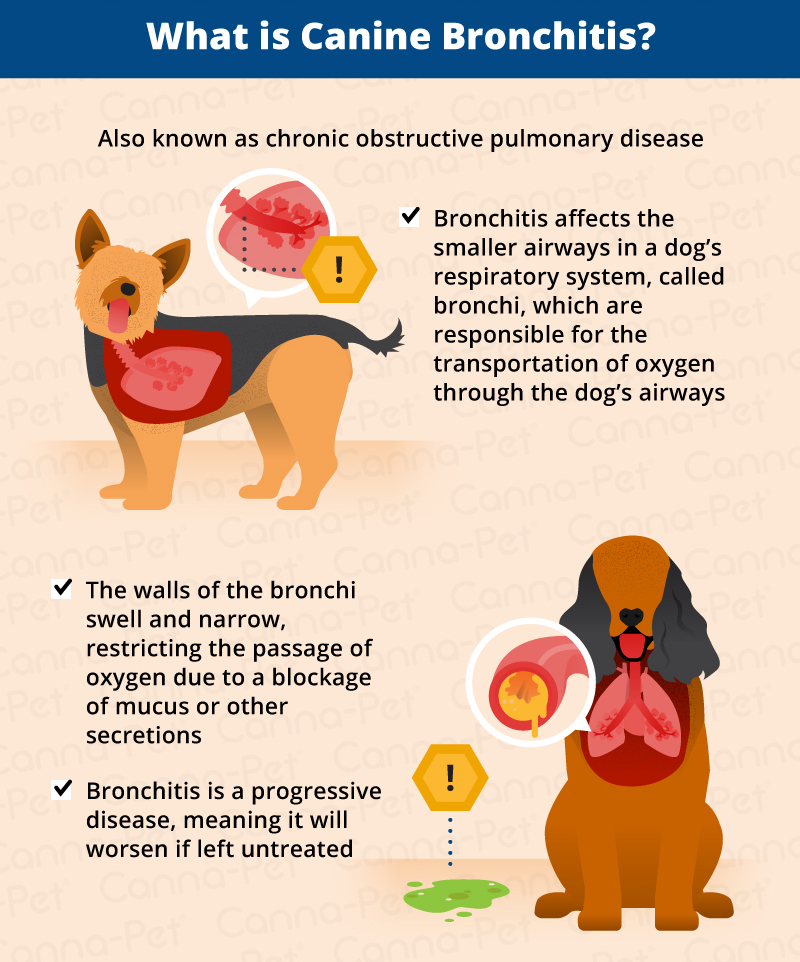Canine bronchitis is inflammation of the bronchi, which are part of the airways of dogs.Bronchi are branches of the trachea that allow air to enter and exit the lungs.
If your dog has recently been diagnosed by the vet with this respiratory disease and you are concerned and you would like to understand better what it is, you have come to the correct article, Animal Expert will explain in a simple way what canine bronchitis is and everything needs to know about this respiratory disease.
- Bronchitis in dogs can be acute or chronic; Acute bronchitis is short-lived and airway damage is usually reversible.
- Unlike chronic bronchitis.
Chronic bronchitis is one of the most common respiratory diseases in dogs, this disease lasts for a long duration, at least 2 to 3 months and causes generally irreversible changes in the airways, usually associated with excessive production of mucus and chronic cough.
Breeds most prone to this type of disease are [1]
These small breed dogs are also predisposed to other diseases that complicate the condition of bronchitis, such as trachea collapse and mitral heart failure.
The most common symptoms of canine bronchitis are:
The main reasons that lead tutors to the veterinarian are intense coughing and/or snot production.
It is important to note that in chronic cases, coughing may change over time, increasing the frequency of episodes [2].
The veterinarian usually relies on clinical signs and cough conditions to diagnose bronchitis.In addition, the veterinarian will attempt to determine the cause, which may be idiopathic, i.e. without a specific or consequential cause of certain diseases to be treated, such as:
The veterinarian may choose to have an x-ray to observe changes in the airways, however, not all cases of bronchitis show these changes.
More severe cases may require additional testing to rule out other differential diagnoses.Possible tests include:
The treatment of canine bronchitis is not specific, that is, it is suitable for each case, since it consists mainly of relieving symptoms, so there is no unique way to treat canine bronchitis, as it depends a lot on the case of your dog.
Medications usually include bronchodilators, corticosteroids, and sometimes also an antibiotic for canine bronchitis.
Severe cases may require oxygenation through a mask and intravenous medication, i.e. directly into the dog’s veins via a catheter, may be necessary.
As for corticosteroids, they are used to decrease the inflammatory process that is the main cause of thickening of the lining of the airways, which causes coughing and mucus production, however, you have to be very careful and strictly follow the instructions given by your veterinarian, since these drugs have several side effects.
The veterinarian may also prescribe mists of products suitable for canine bronchitis, which are very useful for clearing the airways.
Bronchodilators are indicated in cases of bronchial constriction, these can be done by inhalation, as mentioned above, because they have less risk and side effects than orally.
In addition to the treatment prescribed by your trusted veterinarian, you can help with a home treatment for canine bronchitis.
There are several natural foods that help relieve coughing in dogs such as mint, nefle, cinnamon, etc.
Read our article on the home remedy for canine cough to know several alternatives, in any case, never forget to consult your veterinarian before introducing any food or treatment at home for your puppy.
Although this disease is often caused by a genetic predisposition, there are certain things to avoid as they may be the cause of this problem or other respiratory problems, namely:
Basically, you should avoid anything that may irritate your dog’s airways, especially if you’ve seen him cough or sneeze before, as some of these agents may be causing the problem.
This article is for informational purposes only, in Animal Expert.com.br we cannot prescribe veterinary treatments or make any type of diagnosis, we suggest that you take your pet to the veterinarian in case of any condition or discomfort.
If you would like to read articles similar to Canine Bronchitis: prevention, symptoms and treatment, we recommend that you visit our Respiratory Diseases section.

